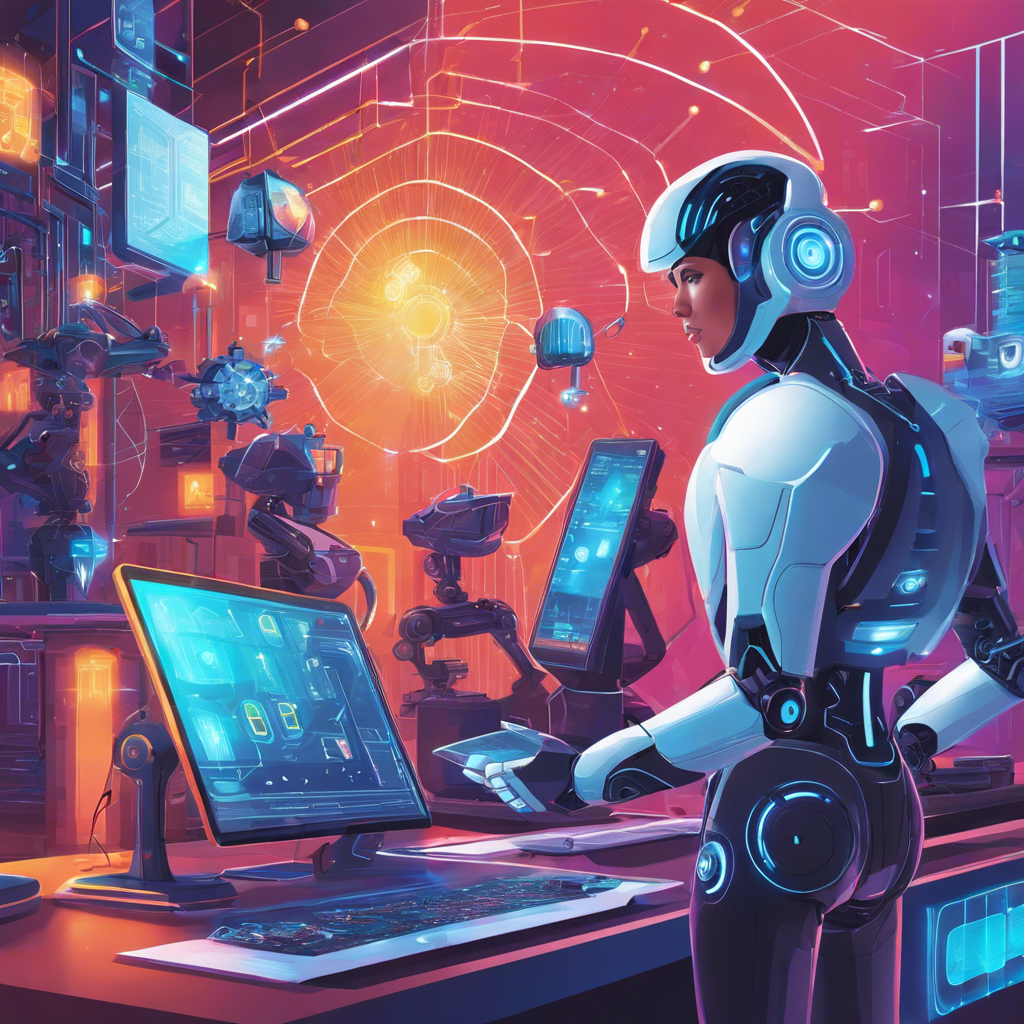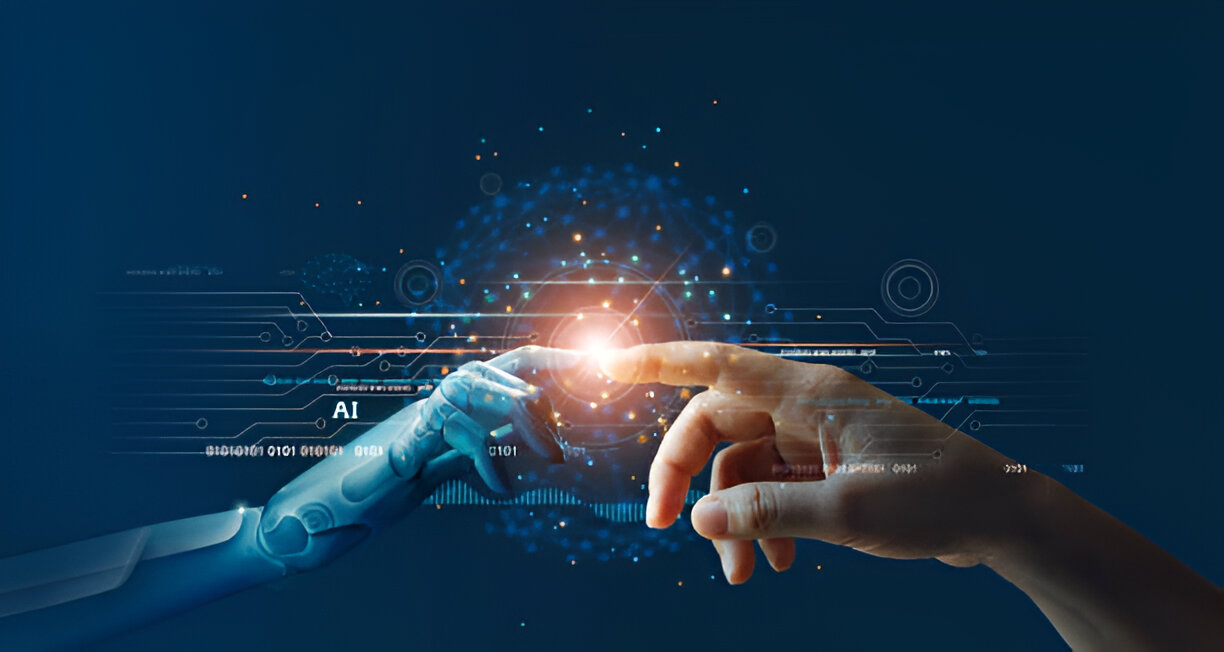The Rise of AI Tools: Revolutionizing Industries and Shaping Our Future
## The Rise of AI Tools: Revolutionizing Industries and Shaping Our Future
Artificial intelligence (AI) has gone from science fiction to reality, permeating every aspect of our lives. We interact with AI-powered tools daily, from personalized recommendations on streaming platforms to virtual assistants that manage our schedules. This rapid advancement has led to a surge in AI tools designed to automate tasks, enhance productivity, and push the boundaries of human capability.
This article will delve into the fascinating world of AI tools, exploring their diverse applications across various industries, their potential benefits and challenges, and their impact on the future of work, society, and our very existence.
**The Power of AI: A Versatile Tool for Modern Life**
AI tools leverage the power of machine learning, deep learning, and natural language processing to perform tasks that were once considered exclusive to human intelligence. These tools can analyze vast amounts of data, identify patterns, make predictions, and even generate creative content. Here’s a glimpse into the diverse applications of AI:
**1. Automation and Efficiency:**
* **Process Automation:** AI tools can automate repetitive tasks, freeing up human workforce for more strategic and creative endeavors. This includes tasks like data entry, customer service, and document processing.
* **Robotics:** AI-powered robots are transforming industries like manufacturing, logistics, and healthcare. They can perform complex tasks with precision and speed, improving efficiency and safety.
* **Predictive Maintenance:** AI algorithms can analyze sensor data from machines to predict potential failures, enabling preventative maintenance and minimizing downtime.
**2. Enhanced Productivity and Creativity:**
* **Content Creation:** AI tools are revolutionizing content creation, generating articles, scripts, and even music with human-like quality. They can also personalize content for specific audiences.
* **Design and Engineering:** AI-powered design tools help architects, engineers, and designers create innovative solutions by exploring vast design possibilities and optimizing for performance.
* **Personalized Recommendations:** AI algorithms analyze user preferences and behavior to provide personalized recommendations for products, services, and content, improving customer experience.
**3. Transforming Industries:**
* **Healthcare:** AI tools are assisting doctors in diagnosing diseases, predicting patient outcomes, and developing personalized treatment plans. They are also used to analyze medical images and accelerate drug discovery.
* **Finance:** AI-powered algorithms are used for risk assessment, fraud detection, and algorithmic trading, optimizing financial processes and improving decision-making.
* **Education:** AI tools can personalize learning experiences, provide adaptive feedback, and automate grading tasks, making education more effective and engaging.
**4. Empowering Human Capabilities:**
* **Accessibility Tools:** AI tools are enabling individuals with disabilities to access information and interact with the world in new ways, breaking down barriers and promoting inclusivity.
* **Translation and Communication:** AI-powered translation tools facilitate communication across language barriers, fostering global understanding and collaboration.
* **Research and Development:** AI tools are accelerating scientific research by analyzing data, identifying patterns, and generating hypotheses, leading to groundbreaking discoveries.
**Navigating the Challenges: Ethical Considerations and Societal Impact**
While AI tools offer immense potential, their widespread adoption also raises ethical concerns and necessitates careful consideration of their societal impact:
* **Job Displacement:** The automation capabilities of AI tools raise concerns about job displacement, particularly for repetitive and routine tasks. However, AI is also creating new job opportunities in fields related to AI development, implementation, and maintenance.
* **Bias and Discrimination:** AI algorithms are trained on data, and if that data reflects existing biases, the AI tool can perpetuate and even amplify those biases. Ensuring diversity and fairness in training data is crucial to mitigate this risk.
* **Privacy and Data Security:** AI tools often require access to large amounts of personal data, raising concerns about privacy violations and the potential for misuse. Secure data management practices and robust privacy regulations are essential.
* **Weaponization and Autonomous Systems:** The development of autonomous weapons systems powered by AI raises serious ethical questions about accountability and the potential for unintended consequences. International regulations and ethical frameworks are necessary to prevent misuse.
**The Future of AI Tools: Shaping Our World**
The future of AI tools is filled with possibilities. Researchers and developers are pushing the boundaries of AI, exploring new applications and addressing ethical challenges. Here are some key areas of development:
* **Generative AI:** AI models are becoming increasingly capable of generating creative content, including realistic images, videos, and even music. This opens up new possibilities for artistic expression and entertainment.
* **Explainable AI:** As AI systems become more complex, understanding their decision-making processes becomes critical. Researchers are developing techniques to make AI more “explainable,” enhancing transparency and trust.
* **AI for Social Good:** AI tools are being used to address pressing social issues, such as climate change, poverty, and disease. These applications leverage AI’s power to analyze data, identify patterns, and develop innovative solutions.
* **Human-AI Collaboration:** The future of AI is not about replacing humans but about augmenting human capabilities. AI tools will work alongside humans, complementing their skills and enabling them to achieve more.
**Conclusion: Embracing the AI Revolution**
AI tools are reshaping our world, automating tasks, enhancing productivity, and pushing the boundaries of human capability. While the adoption of AI raises ethical concerns and necessitates careful consideration of its societal impact, the potential benefits are immense. By embracing the AI revolution, we can harness its power to create a more efficient, innovative, and equitable future.
However, responsible development and deployment are crucial. Open dialogue, ethical frameworks, and ongoing research are essential to ensure that AI tools are used for the benefit of all humanity. As we navigate this exciting new era, it is our collective responsibility to shape the future of AI in a way that reflects our shared values and aspirations.






1 comment